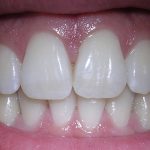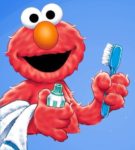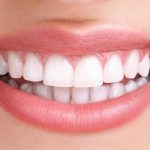10 Simple Tips for Getting Your Toddler to Brush Their Teeth Without a Battle

As a parent, getting your toddler to brush their teeth can sometimes feel like a battle. It can be frustrating when your little one refuses to cooperate or throws a tantrum every time it’s time to brush. However, establishing good dental habits early on is essential for maintaining good oral hygiene and preventing dental problems in the future. Fortunately, there are several simple tips and tricks that you can use to make tooth brushing a positive and enjoyable experience for your toddler. From making it a fun activity to giving them a sense of control, these strategies can help you get your toddler to brush their teeth without any fuss or drama.
Brushing teeth is crucial for the overall health and well-being of toddlers. It helps prevent tooth decay, gum disease, bad breath, and other oral health problems. It is also necessary for the development of strong and healthy teeth, which are essential for proper chewing and speech development. Moreover, teaching toddlers to brush their teeth from an early age instills good dental hygiene habits that will last a lifetime. By making it a fun and enjoyable activity, parents can encourage their toddlers to brush their teeth regularly and maintain good oral health. With consistent brushing and dental check-ups, toddlers can have a healthy smile that will last a lifetime.
Getting toddlers to brush their teeth can be a difficult task for many parents. Toddlers are at an age where they are developing their independence and may resist any attempts to help them with personal hygiene. Moreover, they may not understand the importance of brushing their teeth or the consequences of not doing so. The taste and texture of toothpaste can also be unpleasant for some toddlers, leading to tantrums and refusal to brush. Additionally, parents may have to deal with distractions such as toys, screens, or siblings that make it hard to get their child to focus on brushing. These challenges can cause frustration and stress for parents, but there are several tips and strategies that can help make the process smoother and more successful.
Start Early
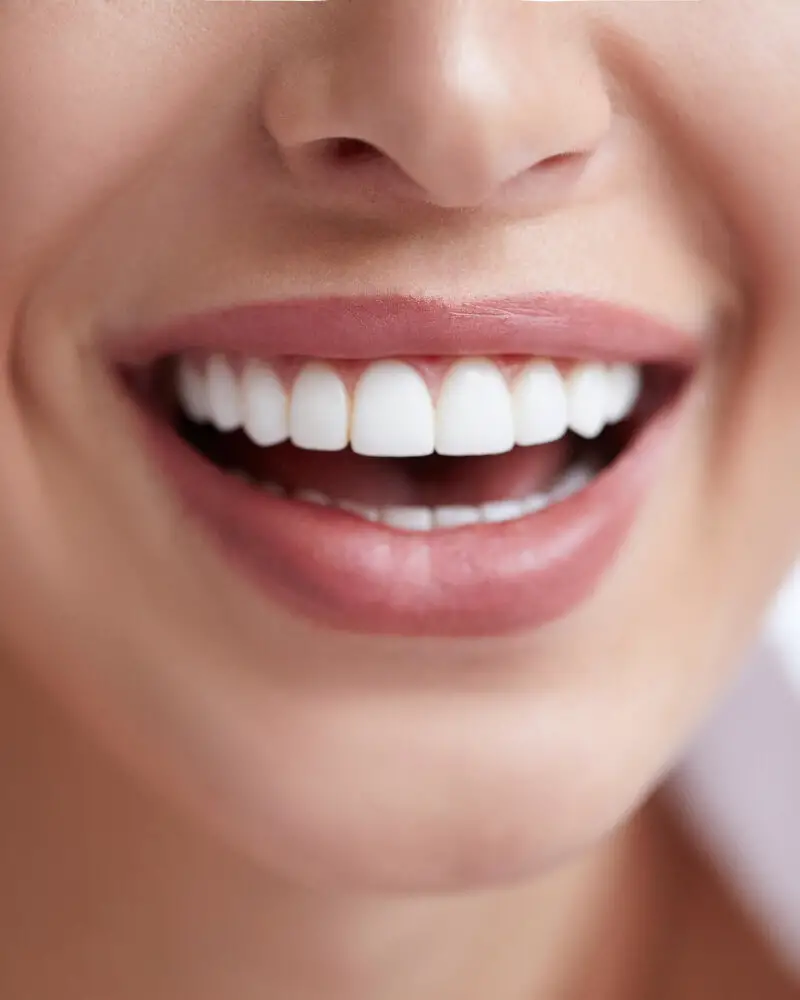
Starting early is key to establishing good dental hygiene habits in toddlers. As soon as teeth start to appear, parents should begin cleaning them with a soft-bristled brush and water. This helps to prevent the buildup of plaque and sets a routine that will become familiar to the child. It’s important to make teeth brushing a positive experience by singing songs, playing games, or using a favorite character toothbrush. The earlier parents start this routine, the easier it will be for the child to accept and enjoy it. Additionally, starting early allows parents to monitor their child’s teeth and gums for any signs of decay or disease. Early detection and treatment of dental problems can prevent more serious issues in the future. By instilling good dental hygiene habits early on, parents can help their children to maintain healthy teeth and gums throughout their lifetime. So, start early and make brushing teeth a fun and positive experience for your toddler.
Starting early is crucial when it comes to establishing healthy habits in toddlers. When it comes to dental hygiene, forming a routine of brushing twice a day can prevent tooth decay, cavities, and gum disease. The earlier children start brushing their teeth, the more likely they are to continue this habit throughout their life. Not only does this set them up for good oral health, but it also helps them develop a sense of responsibility and independence. Encouraging toddlers to brush their teeth from an early age also reduces the chances of them having a fear of the dentist as they grow up. By starting early and making dental hygiene a priority, parents are setting their children up for a lifetime of healthy habits.
Introducing toothbrushing to toddlers can be a challenging task, but it is essential for their oral hygiene. To make the process easier, parents should start by making it a fun and enjoyable experience. They can do this by allowing their child to pick out their own toothbrush and toothpaste with their favorite character or flavor. Additionally, parents can turn toothbrushing into a game or song to make it more engaging. It is crucial to be patient and consistent with toothbrushing, so it becomes a routine part of their daily routine. Parents can also set a good example by brushing their teeth alongside their child. By using these tips, parents can make toothbrushing a positive experience for their toddler and encourage good oral hygiene habits.
Make It Fun
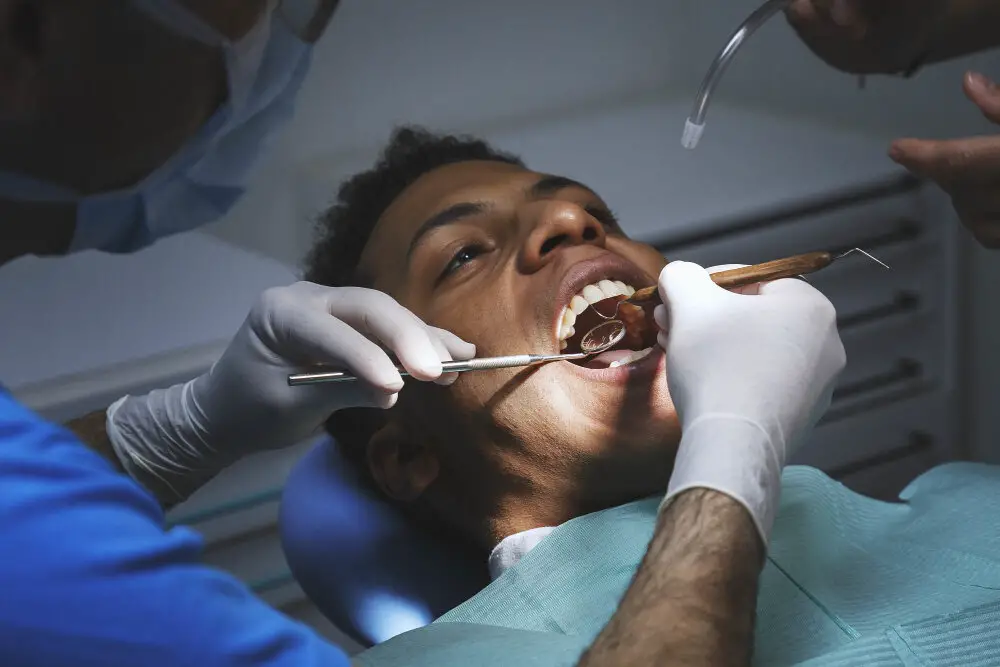
Getting your toddler to brush their teeth can be a battle, but it doesn’t have to be. One effective way to make toothbrushing more enjoyable is to make it fun! Incorporating games, songs, and fun toothbrushes can turn a tedious task into an enjoyable activity. For example, you can make a game out of brushing by pretending to be a dentist and counting your toddler’s teeth while you brush them. You can also sing a toothbrushing song or play a favorite song while you brush. Another fun idea is to let your toddler pick out their own toothbrush with their favorite character or color. Making toothbrushing a fun and positive experience can also help establish good dental hygiene habits for your toddler. By associating toothbrushing with a positive experience, your child is more likely to continue the habit as they grow older. Additionally, making it fun can help reduce any anxiety or fear your toddler may have about toothbrushing, making it easier for them to cooperate and brush their teeth effectively. With a little creativity and effort, toothbrushing can become an enjoyable activity for both you and your toddler.
Getting toddlers to brush their teeth can be a daunting task for parents. Toddlers may resist toothbrushing because it is not inherently enjoyable or engaging. However, there are several ways to make toothbrushing fun for toddlers. Parents can let their toddlers choose their own toothbrush and toothpaste flavor. Parents can also sing a song or play a game while they brush their toddler’s teeth. Creating a routine and making toothbrushing a part of a fun bedtime ritual can also help toddlers get excited about brushing their teeth. Additionally, parents can use positive reinforcement, such as stickers or a small treat, to reward their toddler for good brushing habits. By making toothbrushing fun and engaging, parents can help their toddlers develop healthy dental habits that will last a lifetime.
Engaging your toddler in toothbrushing games and activities can make the experience more fun and less of a struggle. One example is to let your child choose their own toothbrush and toothpaste, as this gives them a sense of control and ownership. Another idea is to sing a toothbrushing song while brushing, or even make up your own silly tune. You can also turn toothbrushing into a game by setting a timer for two minutes and seeing if your child can brush their teeth for the entire duration. Finally, you can use a reward system, such as a sticker chart, to motivate your child to brush their teeth consistently. These fun and interactive toothbrushing activities can help make the process enjoyable for your little one.
Let Them Choose
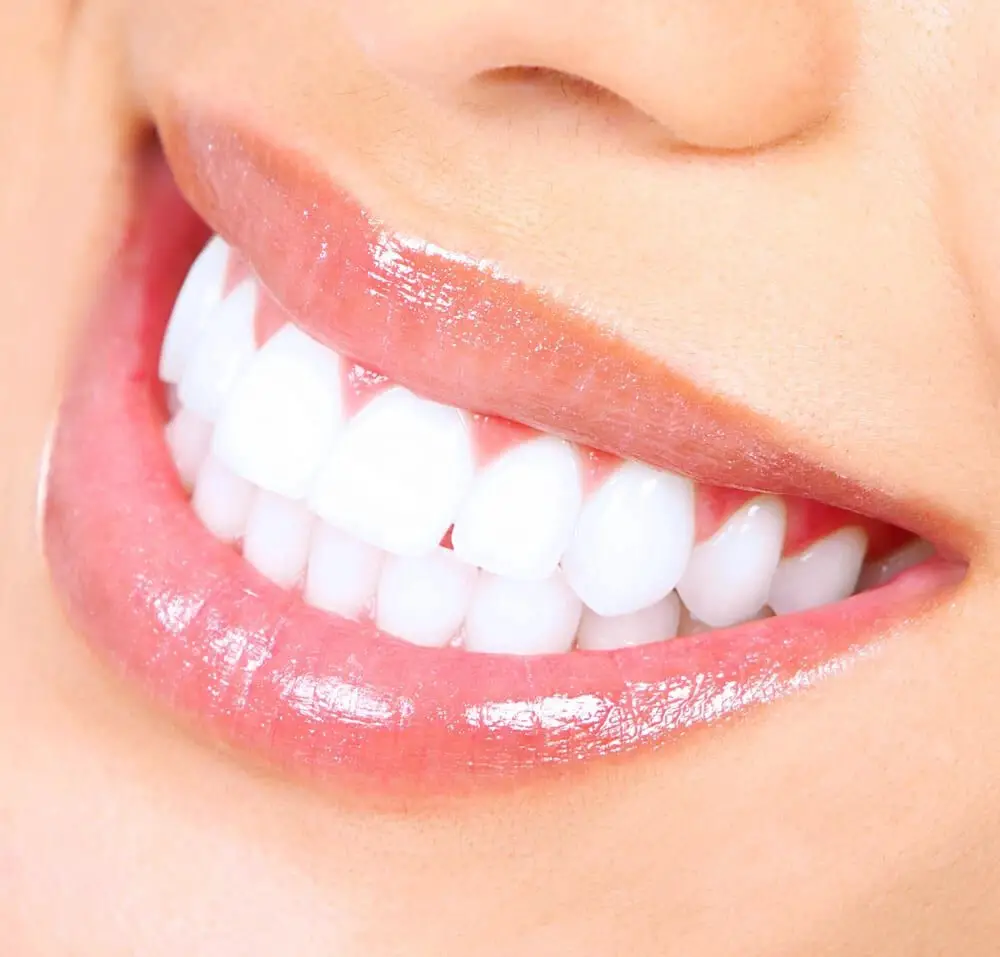
One of the most effective ways to get your toddler to brush their teeth without any fuss is to let them choose their own toothbrush and toothpaste. At this age, toddlers love to have control over their choices, and allowing them to pick their own oral hygiene tools can make a big difference. Take your toddler to the store and let them look at the different toothbrushes and toothpaste flavors available. Encourage them to select the one that appeals to them the most. You might be surprised at how excited they are to use their new toothbrush and toothpaste, and it can turn brushing time into a fun activity instead of a dreaded chore. Another way to give your toddler a sense of control over brushing time is to let them dictate when it happens. If they constantly resist brushing before bedtime, try moving it up to an earlier time in the evening. Likewise, if they refuse to brush their teeth when you ask them to, try giving them a five-minute warning before it’s time to start brushing. This will give them time to mentally prepare and feel like they have some control over the situation. Letting your toddler choose their toothbrush and toothpaste, as well as giving them some control over when brushing time happens, can make a big difference in how they perceive this important daily task.
When it comes to toothbrushing, toddlers can be notoriously stubborn. However, giving them a choice can make the experience more appealing. For example, allowing them to choose their toothbrush or toothpaste flavor can make them feel more involved in the process and give them a sense of control. Additionally, offering two options for toothbrushing times (e.g. before or after bath time) can make them feel like they have a say in the matter. By giving toddlers a choice, parents can empower them and make toothbrushing a more positive experience rather than a daily battle.
Allowing toddlers to choose their toothbrush and toothpaste can be a fun way to encourage them to brush their teeth. To make toothbrush selection exciting, parents can take their child to the store and let them pick out a toothbrush with their favorite cartoon character or color. When it comes to selecting toothpaste, parents can offer a variety of flavors and let their child choose their favorite. This gives the child a sense of control and ownership over their dental hygiene routine, making them more likely to enjoy brushing their teeth. Additionally, parents can make brushing time a fun activity by playing music or singing a toothbrushing song, which can make the experience more enjoyable for both parent and child.
Set a Good Example
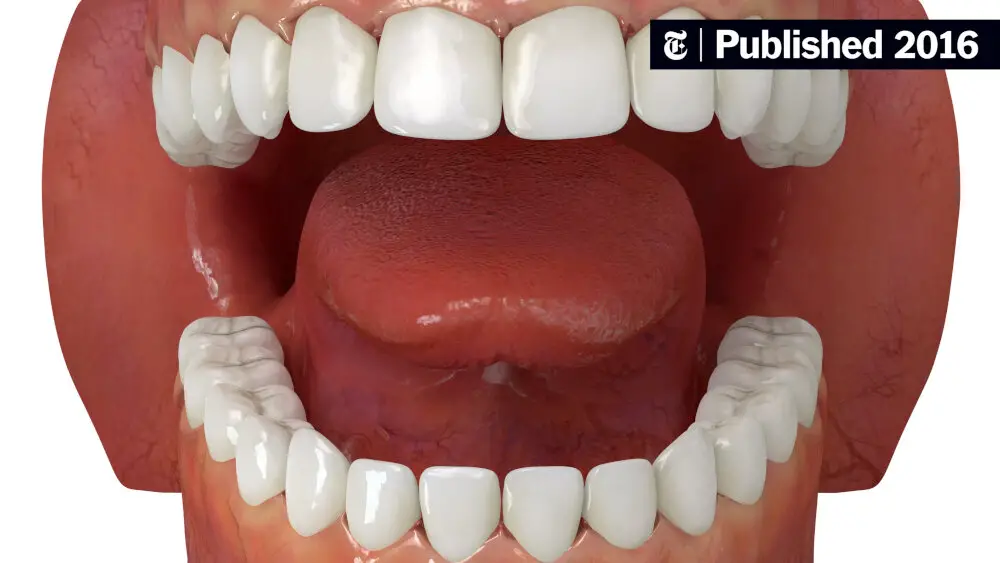
Setting a good example is one of the most effective ways to get your toddler to brush their teeth without a battle. Toddlers love to imitate their parents and those around them, so if they see you brushing your teeth regularly and enjoying it, they are more likely to follow suit. Make brushing a family activity, and you will be surprised at how quickly your little one will become excited about it. Encourage them to watch you as you brush, and let them try brushing your teeth too. This will not only help them develop their brushing skills but also make the whole process less intimidating and more fun. It is also important to make sure that your child sees that brushing is a daily routine that must be followed. Establishing a regular brushing routine will help your child understand that brushing is an essential part of their daily routine, just like getting dressed or eating breakfast. Set aside a specific time each day for brushing, and make sure your child is aware of the routine. This will help them develop a sense of responsibility and discipline, making it easier for them to brush their teeth without a fuss. Remember, it is never too early to start good dental hygiene habits, and by setting a good example, you can help your child develop healthy habits that will last a lifetime.
Parents play a crucial role in shaping their toddler’s behavior, and setting a good example is essential to encourage healthy habits such as brushing teeth. Parents can lead by example by brushing their teeth in front of their toddlers, making it a fun activity, and explaining the importance of it. They can also involve their toddlers in the brushing process by letting them hold the toothbrush or choose their toothpaste flavor. Additionally, parents can make brushing a routine activity, and make sure to reward their toddlers for their efforts. By setting an example and making brushing teeth a fun and routine activity, parents can encourage their toddlers to develop good oral hygiene habits that will benefit them in the long run.
Modeling good toothbrushing habits is essential in getting your toddler to brush their teeth without a battle. One way to do this is to brush your teeth alongside your child, making it a fun and interactive experience. Another tip is to use positive reinforcement, such as praising their brushing efforts or offering a reward for consistent toothbrushing. Additionally, creating a routine and setting a specific time for brushing can help make it a habit. It’s also important to choose a toothbrush and toothpaste that your child enjoys and feels comfortable using. Lastly, teaching the importance of oral hygiene and the consequences of not brushing can help motivate your child to take care of their teeth. By incorporating these tips, you can help your toddler develop good toothbrushing habits that will benefit their oral health for years to come.
Use Positive Reinforcement
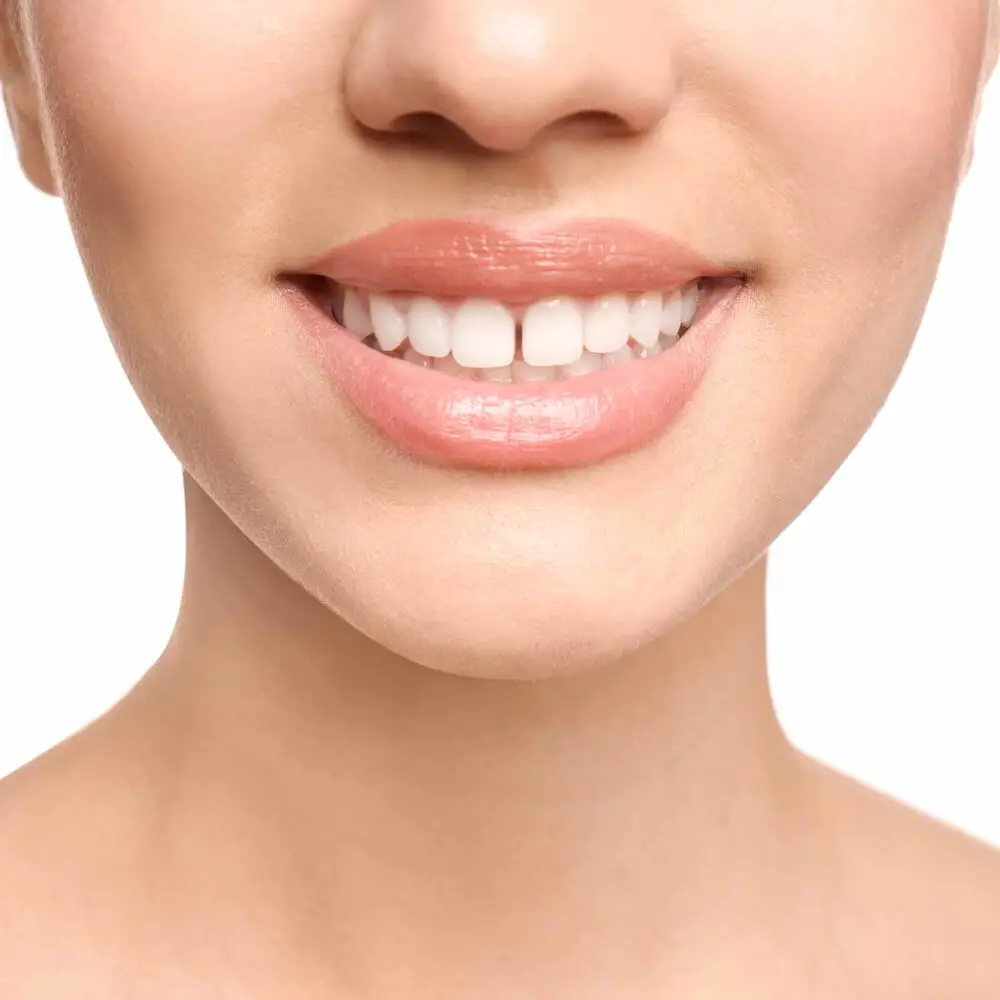
Using positive reinforcement is a powerful tool when it comes to getting your toddler to brush their teeth. Positive reinforcement means giving your child praise, encouragement, or a small reward for good behavior. This can be especially effective when it comes to tasks that your child may not enjoy, like brushing their teeth. You can offer praise and encouragement for a job well done, or even offer a small reward like a sticker or a favorite treat. This can help to make the task of brushing their teeth more enjoyable and less of a battle for both you and your child. When offering positive reinforcement, it’s important to be specific and consistent. Make sure to praise your child for specific behaviors, like brushing for a full two minutes or being gentle with their teeth and gums. Be consistent with your rewards and praise, so your child knows that good behavior will be rewarded every time. This can help to build positive habits and make brushing their teeth a regular part of their routine. With positive reinforcement, you can turn brushing their teeth into a fun and rewarding experience for your toddler.
Positive reinforcement is an effective way to motivate and encourage desired behaviors in children. By rewarding good behavior with praise, treats, or privileges, children are more likely to repeat the behavior in the future. In the context of getting toddlers to brush their teeth, positive reinforcement can be used to make the experience more enjoyable and less of a battle. Praising them for brushing well or giving them a small treat afterwards can help to create positive associations with brushing their teeth. Over time, this can lead to a habit of good dental hygiene and a healthier smile. Positive reinforcement also helps to build a child’s self-esteem and confidence, as they feel proud of their accomplishments and are more willing to try new things.
Rewarding toddlers for good toothbrushing behavior can be an effective way to encourage them to develop healthy dental habits. One idea is to create a sticker chart where they can earn a sticker for each successful brushing session. Once they reach a certain number of stickers, they can earn a small prize such as a new toothbrush, a special treat, or a fun activity with the family. Another option is to make toothbrushing time more fun by playing their favorite music or letting them choose their own toothbrush and toothpaste flavors. Positive reinforcement and making toothbrushing a positive experience can help establish a healthy dental routine for your toddler.
Be Consistent

Consistency is key when it comes to getting your toddler to brush their teeth without a battle. It is important to establish a routine and stick to it every day. This means brushing their teeth at the same time every morning and night, and making sure they understand that it is a non-negotiable part of their daily routine. If you are consistent, your toddler will come to expect and accept brushing their teeth as a normal and necessary part of their day. When they know what to expect, they are less likely to resist or push back against the task. Being consistent also means leading by example. Make sure you are modeling good dental hygiene habits yourself, so your toddler can see that brushing their teeth is something that everyone does. If they see you brushing your teeth every day, they are more likely to want to do it too. Additionally, if you are consistent with enforcing teeth brushing, your toddler will learn that it is an important habit that they should continue as they grow older. Ultimately, consistency is key to making brushing teeth a non-negotiable part of your toddler’s daily routine.
Consistency is a crucial aspect when it comes to getting your toddler to brush their teeth without any resistance. Establishing a routine and sticking to it can make a significant difference in your child’s dental health. Consistently brushing their teeth at the same time every day can help them form a habit that they will carry into adulthood. Additionally, consistency in your approach to brushing, such as using positive reinforcement, can help your child become more comfortable with the process. Consistency also helps create a sense of security and stability for your toddler, which can lead to a more relaxed and cooperative brushing experience. Whether it’s through a visual schedule, rewards system, or simply maintaining a predictable routine, consistency is a key factor in getting your toddler to brush their teeth without a battle.
Establishing a regular toothbrushing routine is crucial for maintaining good oral hygiene. One of the most important tips for getting your toddler to brush their teeth is to make the experience enjoyable. You can do this by choosing a toothbrush and toothpaste with fun characters or flavors that your child likes. Additionally, it’s helpful to set a specific time for brushing teeth each day, such as after breakfast and before bed. You can also make toothbrushing a family activity by brushing your teeth alongside your child. Finally, rewarding your child for their efforts can make toothbrushing more enjoyable, whether it’s with a sticker chart or a special treat. By following these tips, you can help your toddler establish a regular toothbrushing routine that will benefit their oral health for years to come.
Make It a Team Effort

Making tooth brushing a team effort can be a great way to encourage your toddler to brush their teeth without a battle. By involving your child in the process and making it a fun activity, they will be more likely to cooperate and enjoy the experience. You can create a tooth brushing routine together, with each family member taking turns brushing their teeth while the others cheer them on. This can make it feel like a fun game, rather than a chore. You can also let your toddler choose their own toothbrush and toothpaste, which will give them a sense of ownership and make them more excited to use them. In addition, you can involve your child in the decision-making process when it comes to oral hygiene. Let them pick out a fun timer or sing a song while they brush their teeth, and encourage them to take pride in their brushing routine. You can also reward them for good behavior, such as giving them a sticker or a small prize after a successful brushing session. By making tooth brushing a team effort, you are not only promoting good oral hygiene, but also teaching your child the importance of teamwork and cooperation.
Getting toddlers to brush their teeth can be a challenge, but involving them in the toothbrushing process can make it more enjoyable for them. Toddlers love to imitate and be involved in daily routines, so allowing them to hold their toothbrush and practice brushing their teeth on their own can be fun and exciting for them. You can also make toothbrushing time a bonding experience by singing songs or telling stories while you brush their teeth together. Additionally, providing them with colorful toothbrushes and tasty toothpaste flavors can make the experience more enjoyable and encourage them to look forward to brushing their teeth. By involving toddlers in the toothbrushing process, you can turn a daily chore into a fun and positive experience for both you and your child.
Encouraging toddlers to participate in toothbrushing can be a daunting task for many parents. However, there are several fun and creative ways to make this daily activity enjoyable for them. One idea is to let them choose their toothbrush and toothpaste with their favorite color or character. Another is to make it a game by setting a timer for two minutes and brushing together with them or singing a song they like. Parents can also use positive reinforcement by praising their child for their efforts and progress, or giving them a small reward such as a sticker or a healthy snack. Making toothbrushing a fun and interactive experience can help toddlers develop good oral hygiene habits that will benefit them throughout their lives.
Be Patient
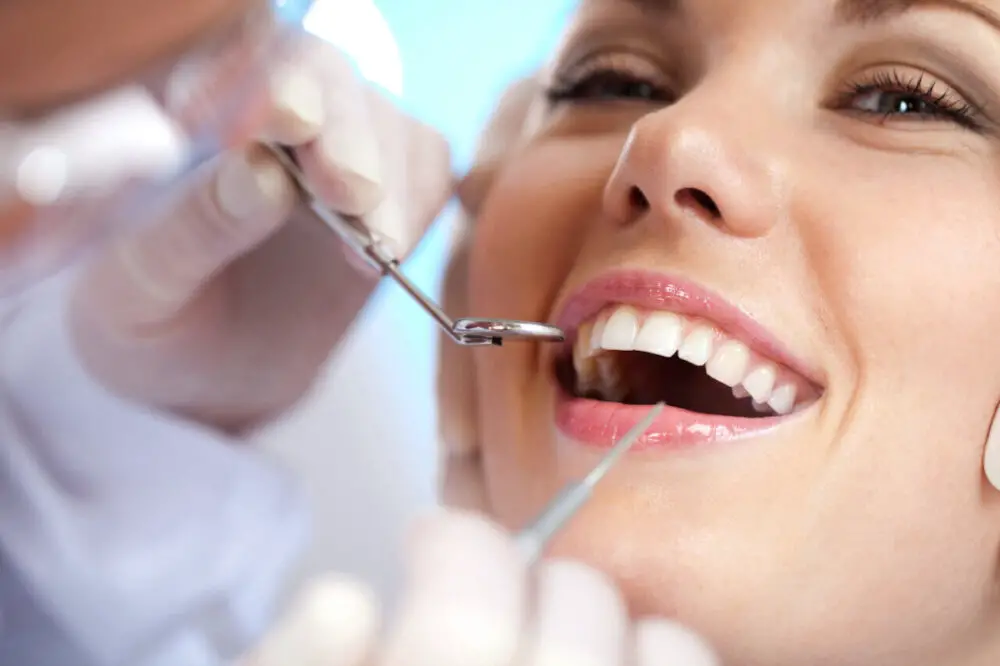
Patience is a virtue when it comes to getting your toddler to brush their teeth. Toddlers are notorious for their stubbornness and reluctance to follow directions. Therefore, it is important to approach the task with a lot of patience and understanding. You should not expect your toddler to brush their teeth perfectly from the get-go. Instead, you should allow them to take their time and make mistakes along the way. Praise them for their efforts, no matter how small, and encourage them to keep trying. With patience, your toddler will eventually learn to love brushing their teeth and will do it without a battle. Another important aspect of being patient is to avoid getting frustrated or angry when your toddler resists brushing their teeth. Getting angry or showing frustration will only make the situation worse and can cause your toddler to develop a negative association with brushing their teeth. Instead, take a deep breath and try to remain calm. Offer gentle reminders and encourage your toddler to participate in the process by letting them pick out their toothbrush or toothpaste. By being patient and positive, you will create a positive environment that will help your toddler develop good dental habits that will last a lifetime.
Patience is a crucial virtue when it comes to encouraging toddlers to brush their teeth. Toddlers are creatures of habit, and they may not like changes in their routine. Brushing teeth is no exception. It may take some time for them to understand the importance of it, and even then, they may not enjoy the process. As a result, parents must keep their cool and not give up on the routine altogether. It is essential to remain calm, patient, and consistent in the face of toddler resistance. By demonstrating a calm and patient attitude, parents can teach their children the importance of good oral hygiene while establishing healthy habits that will last a lifetime.
Toothbrushing battles with toddlers can be a frustrating experience for both parents and children. However, there are some tips that can help you stay calm and patient during these moments. Firstly, try to make toothbrushing a fun activity by singing songs or making silly faces. Secondly, give your toddler a choice by allowing them to choose between two toothbrushes or toothpaste flavors. Thirdly, create a routine by brushing teeth at the same time every day. Fourthly, use positive reinforcement by praising your child for their efforts. Lastly, remember to be patient and understand that it may take time for your toddler to develop good dental hygiene habits. By following these tips, you can make toothbrushing battles a thing of the past and establish positive dental habits for your little one.
Use Technology
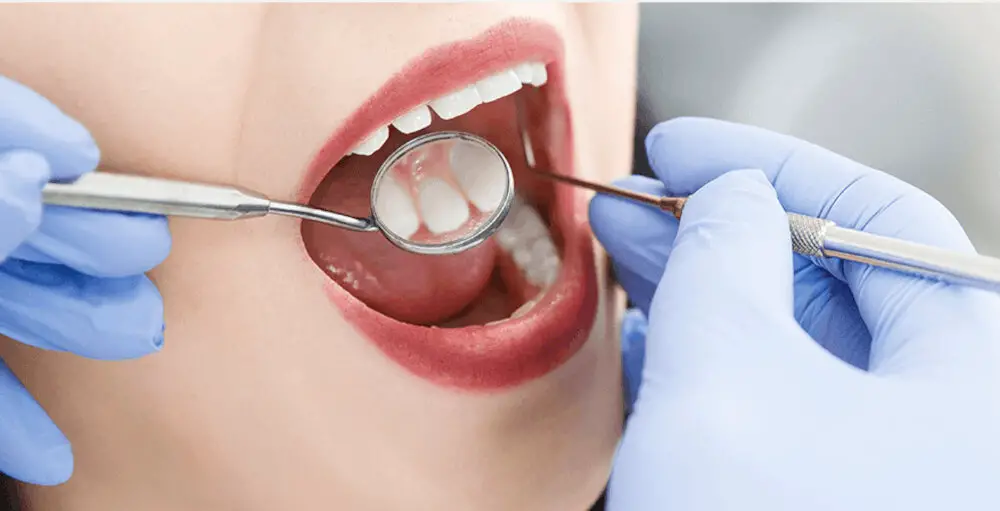
In today’s world, technology is everywhere, and it can be used to make even the most mundane tasks more exciting for children, including brushing their teeth. One way to utilize technology in your toddler’s dental routine is by purchasing a toothbrush with built-in music or flashing lights. This will make the experience more enjoyable for your little one and may even encourage them to brush for longer periods. Additionally, there are numerous brushing apps available that can help your child learn proper brushing techniques while also making the experience more interactive and fun. Another way to incorporate technology into your child’s dental routine is by using a timer app. Setting a timer for two minutes, the recommended time for brushing, can help your child understand how long they should be brushing for and make the process more structured. There are also timer apps that play songs or make noises to signal when it’s time to move on to a different area of the mouth, making brushing more engaging and interactive for your toddler. By using technology in these ways, you can make brushing teeth a more enjoyable experience for your child and help them develop healthy dental habits that will last a lifetime.
Technology can be a great way to make toothbrushing more interesting and engaging for toddlers. One idea is to use a toothbrushing app that features fun characters or animations that guide children through the process. Another option is to use an electric toothbrush with a timer or music feature to make the experience more exciting. Some toothbrushes even have built-in games or interactive features that encourage children to brush for longer periods of time. By incorporating technology into toothbrushing, parents can turn what may have been a dreaded task into a fun and enjoyable experience for their little ones.
Toothbrushing apps and gadgets have become increasingly popular in recent years, as parents struggle to get their toddlers to brush their teeth regularly. Some popular examples include the \Brush DJ\ app, which plays music for two minutes – the recommended time for brushing – and also reminds users to brush twice a day. Another popular gadget is the \Philips Sonicare for Kids\ toothbrush, which features a timer and a variety of different brush heads to suit different ages and needs. There are also apps that use augmented reality, such as \Brusheez\ and \Aquafresh Brush Time,\ which encourage children to brush by turning the activity into a fun game. With so many options available, there’s no excuse for not making toothbrushing a fun and engaging activity for your little ones.
Don’t Give Up

Don’t give up! As a parent, it can be incredibly frustrating when your toddler refuses to brush their teeth. However, it’s important to remember that this is a common struggle for many parents. It’s important to stay patient and persistent in your efforts to get your child to brush their teeth. Don’t give up after one or two attempts – keep trying different strategies until you find what works best for your child. Remember that establishing good oral hygiene habits at a young age is crucial for your child’s overall health. One tip for getting your toddler to brush their teeth without a battle is to make it fun. Try singing a song or making silly faces while brushing their teeth. You can also let your child pick out their own toothbrush or toothpaste with their favorite character on it. Another strategy is to make brushing a family activity. Brush your teeth alongside your child and make it a bonding experience. By incorporating fun and positive experiences into tooth-brushing time, you can make it a habit that your child looks forward to rather than dreads.
It’s important to keep trying when it comes to getting your toddler to brush their teeth because establishing good dental hygiene habits early on has a significant impact on their future oral health. By persistently encouraging and modeling proper brushing techniques, you’re instilling in your child the importance of taking care of their teeth and preventing dental problems like cavities and gum disease. Additionally, the routine of brushing twice a day can become a habit that will benefit them well into adulthood. Even if it’s a struggle at first, keep trying and stay consistent. Your child’s smile will thank you in the long run.
As a parent, it can be incredibly frustrating to get your toddler to brush their teeth. However, it’s important to remember that this is a crucial habit to instill in them from a young age. Don’t give up – keep trying different approaches until you find one that works for your child. Make brushing teeth a fun activity by singing a song or playing a game. Give them a sense of control by letting them choose their own toothbrush and toothpaste. Set a good example by brushing your teeth alongside them. And most importantly, be patient and consistent in your efforts. Your child’s dental health is worth the effort.
In summary, getting toddlers to brush their teeth can be a challenge, but there are several strategies that can make it easier and more enjoyable for everyone involved. First, start early and make brushing a regular part of their routine. Use positive reinforcement and praise to encourage good behavior, and make it fun with songs, games, or a special toothbrush. Let them choose their own toothpaste and involve them in the process as much as possible. Finally, be patient and persistent, and don’t be afraid to ask for help if you need it. With these 10 tips, you can help your toddler develop good oral hygiene habits that will benefit them for life.
As a final word of encouragement for parents struggling to get their toddlers to brush their teeth, it’s important to remember that consistency and patience are key. It may take some time before your child fully embraces the habit of brushing their teeth, but don’t give up. Make it a positive experience by choosing fun toothbrushes and toothpaste, singing songs or telling stories while brushing, or even brushing your teeth together as a family. Celebrate small victories and keep reinforcing the importance of good oral hygiene. With a little perseverance, your toddler will soon understand the importance of taking care of their teeth and develop a healthy habit that will stay with them for life.
Conclusion
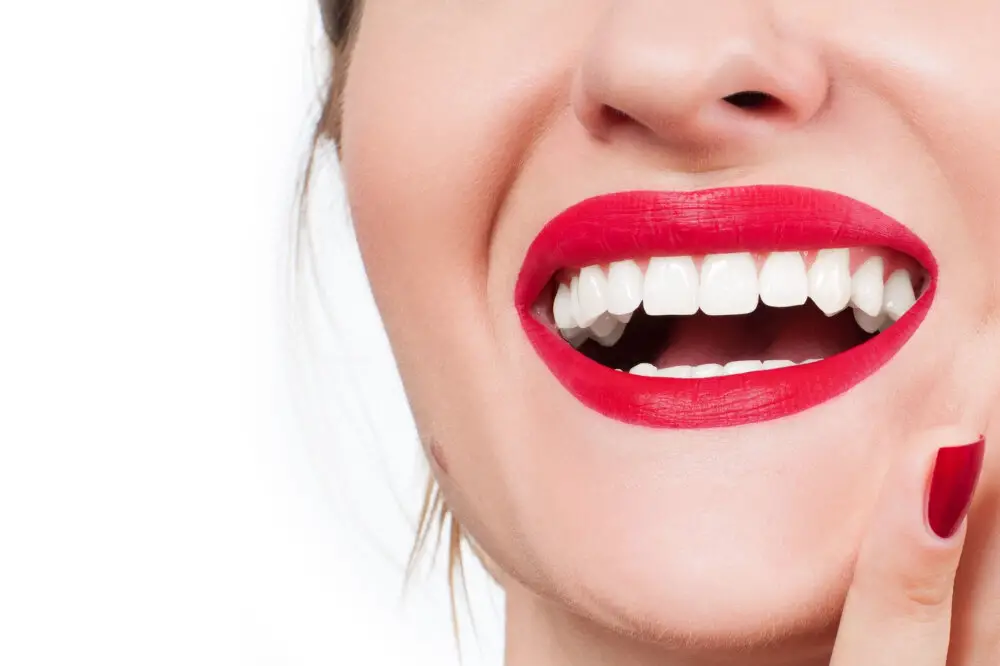
In conclusion, getting your toddler to brush their teeth without a battle can be a challenging task, but with the right approach and patience, it can be achieved. The 10 simple tips mentioned in this article, such as making brushing fun, using positive reinforcement, and setting a good example, can go a long way in encouraging your child to develop good oral hygiene habits. It is important to remember that every child is different and what works for one may not work for another. Therefore, it is essential to be creative and find what works best for your child. With consistency and perseverance, you can help your toddler develop a lifetime of healthy dental habits.

